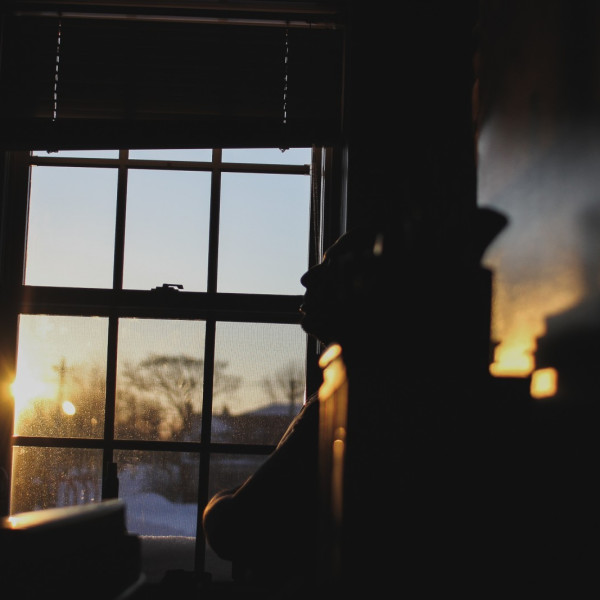Dealing with Death

On Tuesday, April 24th, I was interviewed on BBC Radio about technology, the pursuit of immortality, and the meaning of death.
In the middle of that night, we were awakened by a call from an out-of-state hospital, telling us that my father-in-law had lost consciousness.
We spent the next week with doctors and nurses and members of the community, fighting for his life. On May 4th, around noon, he died peacefully, surrounded by friends and family.
People express their grief in many ways—and I have grieved in many ways over these last few weeks. One way that I express it, though, is to try to put my thoughts in order, to try to capture what I am experiencing and processing.
These are some things I wrote during this process.
I think that all expressions of grief capture something that is true, and leave out something that is true—including this one.
Read it in that spirit.
Death is bad.
Anyone who tells you otherwise has either not experienced it personally and individually, or is trying to find a way of coming to terms with just how bad it is.
It is a tragedy—a loss of so many, many irreplaceable things.
People who believe in an afterlife or a higher spiritual dimension might suggest that the person hasn’t really been lost at all. Why, therefore, should we cry? What has really been lost?
But something significant has been lost:
Relationships.
What really is the value of life, if not this? What is it we struggle for, fight for, and remember about someone, if not their relationships? What do we live to do?
We live to be in relationship—with people, animals, our bodies, the physical world.
Most of us want long, healthy, productive and meaningful lives. We want to contribute to others in our community, our society, our family. We want to create new things, and fix old things. We want to share joy and jokes and stories with other people, who will then share joy and jokes and stories with us.
Relationships, in the deepest sense, are who we are. We are not atomic, isolated, Cartesian minds—we are a deeply intertwined network of relationships, stretching out to the ends of the world.
Death takes all of this away.
I don’t want to mitigate this reality. I don’t want to hide from, or sugar-coat these facts. I want to know it and acknowledge it fully, for the all-embracing tragedy it is.
In that way, I know that whatever hope I find, and whatever goodness I discover, is no mere coping mechanism for hiding from the truth.
Whatever else I say, I want to know that it isn’t a shallow platitude, but something that can ring out through the halls of an ICU.
I think there's something good that happens when we grieve.
We focus our thoughts and memories, we take stock of a person's impact on the world, we realize they reached far beyond what we might assume.
We think of all the things we wish we had done. We process all the missed opportunities. We celebrate them and mourn them and love them.
This is good, and I think that sometimes the goodness of it makes us think that death itself is desirable. Like maybe finitude is the value of life.
But that's a mistake. This process of bringing good out of bad requires life. This is what life is—it's what life does. The goodness contained in grief isn't brought to us by death. It's created by life.
Grief is a taste of resurrection. Life bringing life out of even death.
Death is a tragedy. That’s the reality of it.
“Death is a doorway to a better life”
...or...
“Life is valuable because it is finite”
Are both ways of saying that death is not really a tragedy. But I would rather just face the tragedy head-on.
In a sense, my whole project is to figure out how hope can be real and meaningful, without ever backing away from the tragedy of our lived experience.
The resolution is to recognize that tragedy is real—but that tragedy can be ameliorated, and eventually, overcome. And what we learn through the tragedy can make the final outcome better than it would have been.
That’s redemption.
And it requires our participation. We have to recognize tragedy for the horror it is, grieve it, and learn from it. Only then can we participate with life in overcoming that tragedy.
But this is complicated. Thinking about death, the loss of someone is a tragedy, and it’s a tragedy that compounds. Even if they are resurrected, we will have lost immeasurable opportunities in between.
That might indicate that death can be overcome, but never ceases to be a tragedy.
Unless there's something else.
Perhaps if we learn from their loss, then their resurrection can do more than simply undo the loss. Perhaps it can create new, better possibilities for that relationship. Perhaps we can all make better choices on the other side, than we ever would have otherwise.
If that’s a possibility, it’s one that requires us to be involved and engaged in learning from and seeking to overcome these tragedies.
And that's why I never want to draw back from any of it.
Whatever the loss, I want to be there, in the flesh, experiencing that very real tragedy with all of my being.